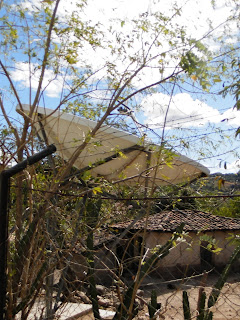What went wrong?
If you have ever visited Honduras or any one of many other countries that are considered to be a developing country, you have likely seen development projects that have not worked out as planned. Everyone involved in the projects meant well. They saw a need that they wanted to help meet. Whether it was national governments, local governments, NGOs, universities, or individuals involved in the project, all made an effort to do good. Vast amounts of resources were often invested in planning, providing materials, and covering travel expenses. Everyone expected success, but in the end, something was lacking.
Once the funds ran out, once the NGOs and church teams went home, or when the politicians left office, the projects often became unsustainable in local communities. They may last for a couple of years, but then the water projects run dry. Houses may have been left finished but often remain uninhabited or are soon in disrepair. Agriculture projects never even produced an initial harvest of the final hoped-for bountiful harvest. Technologies lasted as long as the people who installed the project remained, but quickly stopped functioning once they left. Promises were made, but ultimately were not fulfilled. As a result, oftentimes resentment builds between the donor organization and those who are recipients of the donations. Relationships become damaged and people stop answering inquiries into the reasons why the project has failed.
What went wrong? Was the technology unsustainable? Was it a design failure? Was the failure due to a lack of education? Was the project even one that the community or individuals really needed or wanted?
We have not only seen failed projects, we have participated first-hand in our share of them. I've found myself at times asking myself, for example, how to get people to want an aquaponics project in their backyard when they don't even have any concept of aquaponics. They could not possibly want aquaponics if they have never before heard of aquaponics.
Last year we visited a remote community where internet had been installed by some organization, but the project had been totally abandoned by the time we visited the community. We had been asked to take a medical brigade to the community located on top of the mountain, and to see if there were other ways that we could help out with developing the area.
It took us about an hour to drive the rough rocky road, even though the village was located only a few miles away from our home. When we arrived at the community, we were told that the community consisted mostly of young children and women. The men were seasonal workers in the large farms that are located along the southern coast of Honduras. They worked too far away to be able to commute daily to their homes.
The village had a government health center, but there was
very little medicine on the shelves. It was vacation time so there were no children in the school. About the only other activity that we saw was with the local police post. One policeman was present and he told us how he had needed to look for medical attention back in the city when he had wrecked his motorcycle.
One room was set up as a computer laboratory. What really caught our attention was the large bank of deep cell batteries stacked outside the room and the wires dangling from the solar panels nearby. When we asked about the equipment, one of the community members proudly told us that everything had worked at one time, and they even had the internet connections to the school. The equipment had been installed some time after Hurricane Mitch had hit Honduras in 1999.
What could we do? The only thing we could offer was bringing a medical brigade to the community. We were unable to provide regular health support to the community. It was so close but too far away for us to commit to any long-term arrangement. Possibly, the medical brigade could be of some support.
The medical brigade attended the community for one day. They even left extra medicines to be used in the government clinic. But the frustration was overwhelming in not being able to adequately meet the health needs of the community. After seeing just a few patients, it was obvious that one of the greatest needs in the community was to have water. They didn't ask for clean water, they just needed water. Honduras has a pronounced dry season, especially in the southern part of the country. It usually does not rain from December-May. One of the patients was told that her health problems were likely related to not drinking enough water. She was dehydrated. When asked how much water she drank each day, she motioned with her finger and thumb and said about a half a glass was all she could get on a daily basis.
I've been asking myself ever since "What went wrong in San Ramon? Hopefully, we can all learn from our experiences.





Comments
Post a Comment